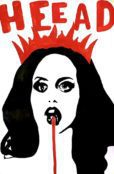[dropcap style=”font-size:100px; color:#992211;”]T[/dropcap]he perfect pop song is something that eludes most songwriters, and I should know, it’s been eluding me for some time.
If you’re familiar with any of the music by my band, Man & The Echo, you might be surprised to learn that we are trying to write perfect pop songs, given the often unconventional nature of our subject matter. I would be just as surprised if you are familiar with any of our music.
In the last twelve months we have released:
1) A song about tax dodging major corporations and abhorrent career politicians.
2) A story about a liberal being kidnapped in a right-wing village.
3) A song about banal social media updates, containing the word “fuck” 24 times.
4) An explanation of political correctness for idiots.
We’re currently recording our debut album which, amongst others, contains a song based on a Roland Barthes essay, an attempt at lyric poetry about the spaces between industrial estates and housing estates, a song about a class divide at a wedding, and one that is just a list of things that a carer does in a day.
You might think that I’m trying to carve out some sort of obscure niche identity, or trying to sabotage our faint chances of commercial success by picking intentionally strange topics to write about, but I genuinely see what we do as being accessible pop music. I think that pop music has a duty to be as interesting, odd and unexpected as possible. It should excite, amuse, surprise and provoke. Nothing in the art world has the potential to affect as many people as a slice of three minute pop, and nothing makes words more powerful than singing them.
A glance at the type of music which becomes popular, suggests that my way of thinking has me in the minority. Pop music in the 2010s amounts to insincere bragging and narcissistic self-dramatization. The following are my biggest annoyances when it comes to banal song topics:
The Writer/Performer’s Journey
It’s common in hip hop music for a rapper to, particularly on a debut track, give a kind of autobiographical introduction to, well, themselves. This is great when it’s done well as the journey from the streets to the studio is often a story worth hearing. What I can’t abide is when a singer songwriter uses the mediocre pop ballad as a self-congratulatory assurance to the listener that they’re grateful to be making music and that they won’t forget their roots.
Nowhere is this better exemplified than in the currently chart bothering “7 Years” by Lukas Graham. The jarring way he describes his situation at various ages (“once I was seven years old” should be “when I was seven years old” – the fact that you are now older than seven tells me that once for a whole year you were seven, so you don’t need to) is almost forgivable, given that the writer is Danish and writing in a second language. The nauseating way in which Graham pats his own back for making the most of his own brilliance however, is not. “I only see my goals, I don’t believe in failure,” Graham drawls, pointing out the difference between successful him and shitty you. Thankfully one of his goals wasn’t to become a driving examiner.
Writing a song about being a songwriter is the musical equivalent of starting a short story with “Jack had writer’s block.” For me the worst bit is when he says “Once I was twenty years old / My story got told / I was writing about everything before me,” because writing a song about writing a song is not writing about everything before you, it’s doing the precise opposite. A song that amounts to “look at me” portrays not the talent of the writer (which is what is intended) but how little they have to say.
The Proudly and Pathetically Debauched/Rebellious
Major labels are only too happy to let their stars sing about how unruly or nonconformist they are, because it sells well to unruly, nonconformist teenagers and that’s who buys records (in the 1960s). What they don’t want are artists who are actually unruly and nonconformist because that would be somewhat at odds with the PR principles of major multi-national corporations.
Songs where artists talk about getting wrecked tend to be cloyingly bland. Loads of the big hitters have form here, from Ed Sheeran and Ke$ha to Beyoncé. Coldplay recently released their latest stadium swayer, “Hymn For The Weekend,” which contains the celebratory clarion call for letting loose; “I’m feeling drunk and high.”
When I’m pissed I tend to veer between talking inarticulate drivel and denying my own inebriation, rather than declaring with primeval abandon how wonderful it is to have sunk a few. In fact as far as I’m aware, the only people who talk about how drunk they are, are those who are pretending to be drunk to try and fit in at parties.
I should say that I’m basing that on depictions of parties I’ve seen in films: I don’t tend to get invited to a lot because I spoil them for everyone else by deconstructing all the music and pretending I’m not drunk. Nevertheless, these songs all carry a whiff of insincerity because they sound like the sort of things that people who don’t really drink say.
Even worse than the disingenuous revelers are the fake rebels. I recently had cause to look up who Charlie XCX was, because I saw reputable music publications saying good things about her. She has a song called “Break The Rules” which actually contains the lines “I don’t wanna go to school /I just wanna break the rules.” This has to be the least edgy thing anybody has written since I wrote “Gaz is Kool” on my pencil case in year 7, and at least I was being honest.
The transparent stretching to seem nonconformist by these mainstream dullards has the ultimate effect of feeling less cool than a song about the importance of paying attention to detail when filling in a tax return.
The Simplistically Optimistic
Picture the scene: You are David Cameron. Junior Doctors are striking, the government is split over whether to stay in Europe and people are dying whilst waiting to be assessed for sickness benefits. It’s prime minister’s questions and Jeremy Corbyn has just asked you what you are going to do save the country from impending economic and social disaster. You take a sip of water, stand up confidently before the dispatch box and simply say:
“Don’t worry, I think everything will work out fine in the end.”
“But how?” cry the opposition benchers, “What are you going to do? There aren’t any doctors! People are dying! Our businesses and jobs are under threat!”
“Everything,” you say, calmly, “will work out fine in the end.”
I’m not saying songwriters should be held to the same levels of accountability as politicians, but they should at least try to make sense. It’s all very well for Paolo Nutini to say “nothing’s gonna bring me down,” but in truth, there is always something that could bring anyone down. What if a dog bit your hand off, Paolo? Daniel Powter thinks my bad day will be turned around if I work on a smile and go for a ride, but what if the cause of my bad day is that my car was stolen? How do I go for a ride then? You’re making me feel worse Daniel!
The performers of these types of songs portray themselves as wise soothsayers, when in reality they are simplistic morons. I, for some reason, am regularly told by perfect strangers to cheer up, and I find this infuriatingly grating. It’s even more irritating to have the same sentiment glibly crooned at you in a mid-Atlantic accent.
I find music at it’s most uplifting when it recognises my pain, without trying to explain it away. The first time I heard “Heaven Knows I’m Miserable Now,” it cheered me up immensely because it empathised hilariously with the shallow causes of my bad mood. Being told that I can adopt a veneer of positivity in order to quash any bad feeling simply fills me with murderous rage.
*
From the above bad tempered ramblings you might think that I regard myself rather highly as a lyricist. The truth is that, whilst I don’t think I’m terrible, I’m filled with doubts about my abilities and the quality of what I do. I agonise over lines for fear they might be shit and I’m haunted by the lyrics that I didn’t improve until it was too late and they’d already been released.
I suppose my big lament is that, when you look at what is truly popular, the effort and worry that I expend trying to make lyrically interesting music is pointless. As a friend once put it to me when I said one of my songs needed a re-write;
“Don’t worry about it, no one listens to the lyrics anyway.”
Gareth Roberts is a musician and writer who lives in the North West of England. His band, Man & The Echo are signed to 1965 records and will release their debut album in 2016.
Twitter: @manandtheecho
www.manandtheecho.com






















